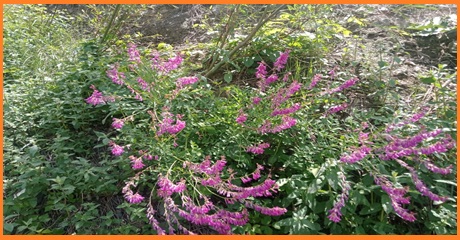Introduction:
The Impact of Nature on Human Behavior or Human behavior is influenced by a myriad of factors, ranging from genetics and upbringing to social environment and personal experiences. Among these influences, the role of nature, encompassing the natural world around us, holds significant importance. From the serene beauty of a forest to the vastness of oceans and the tranquility of mountains, nature has a profound impact on human behavior. This article delves into the intricate relationship between nature and human behavior, exploring how exposure to natural environments shapes our thoughts, emotions, and actions.
The Calming Effect of Nature:
One of the most evident ways nature affects human behavior is through its calming effect. Numerous studies have shown that spending time in natural surroundings, such as parks, forests, or gardens, can reduce stress, anxiety, and negative emotions. The phenomenon, often referred to as “biophilia,” suggests that humans have an innate affinity for nature, and being in natural settings promotes feelings of well-being and relaxation.
Researchers have found that exposure to natural environments can lower cortisol levels, the hormone associated with stress, while increasing feelings of happiness and contentment. Even brief interactions with nature, such as taking a walk in the park or gazing at a scenic view, have been shown to improve mood and cognitive function. This calming effect of nature plays a crucial role in mitigating the detrimental effects of modern urban lifestyles characterized by constant noise, pollution, and digital distractions.
Enhanced Cognitive Function and Creativity:
In addition to its calming influence, nature also enhances cognitive function and creativity. Studies have demonstrated that spending time in natural settings can improve attention span, memory, and problem-solving skills. The restorative properties of nature help rejuvenate mental energy, allowing individuals to focus better and perform tasks more efficiently.
Moreover, exposure to natural environments stimulates creativity and imagination. Nature’s diverse landscapes, colors, and patterns serve as a source of inspiration for artists, writers, and innovators. Many renowned thinkers, from Henry David Thoreau to Albert Einstein, have credited nature for sparking their creativity and fostering deep introspection.

Promotion of Physical Activity and Well-being:
The connection between nature and physical activity is undeniable. Natural environments provide ample opportunities for outdoor recreation, such as hiking, biking, and swimming, which promote physical health and well-being. Engaging in outdoor activities not only improves cardiovascular fitness and strength but also enhances mood and self-esteem.
Furthermore, spending time in nature encourages people to disconnect from technology and adopt a more active lifestyle. Unlike indoor settings where sedentary behaviors predominate, natural landscapes encourage movement and exploration. Whether it’s climbing a mountain or kayaking in a river, outdoor adventures foster a sense of adventure and accomplishment, contributing to overall happiness and life satisfaction.
Fostering Empathy and Connection:
Another intriguing aspect of nature’s influence on human behavior is its ability to foster empathy and connection with others. Studies have shown that exposure to natural environments can increase feelings of compassion, generosity, and social cohesion. Being in nature encourages people to adopt a broader perspective and develop a sense of interconnectedness with the world around them.
Nature also provides opportunities for social interaction and bonding. Whether it’s sharing a picnic in the park or going for a hike with friends, spending time outdoors strengthens interpersonal relationships and builds community ties. In an increasingly fragmented and digitalized world, nature serves as a unifying force, bringing people together and nurturing a sense of belonging.
Conclusion:
In conclusion, nature exerts a profound influence on human behavior, shaping our thoughts, emotions, and actions in myriad ways. From its calming effect on stress and anxiety to its role in enhancing cognitive function and creativity, nature holds immense therapeutic value. By promoting physical activity, fostering empathy, and strengthening social connections, natural environments contribute to overall well-being and quality of life.
As we navigate the complexities of modern existence, it’s essential to recognize the importance of maintaining a strong connection with nature. Whether it’s taking a leisurely stroll in the park or embarking on a wilderness adventure, incorporating nature into our daily lives can have transformative effects on our mental, emotional, and physical health. By embracing the beauty and bounty of the natural world, we not only enrich our own lives but also contribute to the preservation and sustainability of our planet.

I was curious if you ever considered changing the layout of your website? Its very well written; I love what youve got to say. But maybe you could a little more in the way of content so people could connect with it better. Youve got an awful lot of text for only having one or two images. Maybe you could space it out better?
Sweet website , super design, really clean and apply genial.
I simply could not go away your website prior to suggesting that I extremely loved the standard information an individual provide in your visitors? Is going to be again frequently to inspect new posts.
I have learn some excellent stuff here. Definitely value bookmarking for revisiting. I wonder how a lot effort you put to make the sort of excellent informative site.
Great write-up, I¦m regular visitor of one¦s blog, maintain up the excellent operate, and It is going to be a regular visitor for a long time.
Great blog here! Also your web site quite a bit up fast! What web host are you using? Can I get your associate hyperlink to your host? I want my web site loaded up as fast as yours lol
nxa3un
8r1l9h
Excellent post. I was checking constantly this blog and I’m impressed! Very useful information particularly the remaining phase 🙂 I care for such information much. I was seeking this certain info for a very long time. Thank you and good luck.
You have remarked very interesting points! ps decent internet site.
6am7vh
Make mornings more adorable with this Hello Kitty alarm clock CD player. Ideal for kids and collectors alike, this charming CD clock radio includes all the basics: AM/FM radio, programmable CD playback, and reliable alarm settings. Wake up to your favorite CD or a cheerful radio station with built-in stereo sound. A large digital display and simple controls make it easy to use, even for younger users. Combining cuteness with functionality, it’s a top pick among themed alarm clocks with CD players that bring fun and joy to your space.
This all-in-one clock radio CD player is more than just an alarm—it’s a full media hub. Along with a traditional CD player, it features AM/FM radio, Bluetooth connectivity, and a wireless remote control. Dual alarms make it easy to set different wake times, while the large LED display ensures easy readability. With rich stereo sound and multiple playback options, it’s one of the best clock radios with CD player and Bluetooth functionality. Great for music lovers who value versatility in a radio alarm clock CD player setup.
Generally I do not read post on blogs, but I would like to say that this write-up very forced me to try and do it! Your writing style has been amazed me. Thanks, quite nice article.
Hey there would you mind stating which blog platform you’re using? I’m planning to start my own blog in the near future but I’m having a hard time deciding between BlogEngine/Wordpress/B2evolution and Drupal. The reason I ask is because your design and style seems different then most blogs and I’m looking for something unique. P.S Sorry for being off-topic but I had to ask!
I was suggested this web site by my cousin. I’m not sure whether this post is written by him as nobody else know such detailed about my difficulty. You are amazing! Thanks!
Very interesting info !Perfect just what I was looking for! “Outside of a dog, a book is man’s best friend. Inside of a dog it’s too dark to read.” by Groucho Marx.
I was wondering if you ever thought of changing the page layout of your blog? Its very well written; I love what youve got to say. But maybe you could a little more in the way of content so people could connect with it better. Youve got an awful lot of text for only having 1 or 2 pictures. Maybe you could space it out better?
Hello, i feel that i saw you visited my web site so i got here to “go back the want”.I am attempting to to find issues to enhance my web site!I guess its adequate to use a few of your ideas!!
Thank you for the sensible critique. Me and my neighbor were just preparing to do some research on this. We got a grab a book from our area library but I think I learned more from this post. I’m very glad to see such magnificent info being shared freely out there.
Thank you for helping out, excellent info. “Those who restrain desire, do so because theirs is weak enough to be restrained.” by William Blake.
Appreciating the persistence you put into your blog and in depth information you offer. It’s good to come across a blog every once in a while that isn’t the same outdated rehashed material. Wonderful read! I’ve bookmarked your site and I’m adding your RSS feeds to my Google account.
Way cool, some valid points! I appreciate you making this article available, the rest of the site is also high quality. Have a fun.
I am glad to be one of several visitors on this great web site (:, regards for posting.
naturally like your website but you have to check the spelling on quite a few of your posts. A number of them are rife with spelling issues and I find it very bothersome to tell the truth nevertheless I’ll definitely come back again.
You have remarked very interesting details! ps nice internet site. “To grow mature is to separate more distinctly, to connect more closely.” by Hugo Von Hofmannsthal.
Utterly written subject matter, Really enjoyed studying.
Hi, Neat post. There is an issue along with your site in web explorer, would check this… IE still is the market leader and a good portion of other people will leave out your excellent writing because of this problem.
Thank you a lot for giving everyone an extremely spectacular opportunity to read articles and blog posts from here. It’s usually very superb and as well , full of fun for me personally and my office fellow workers to search your blog at least 3 times in one week to learn the fresh tips you will have. And lastly, I’m so always amazed with the striking creative concepts served by you. Some 3 ideas in this post are easily the very best we’ve ever had.